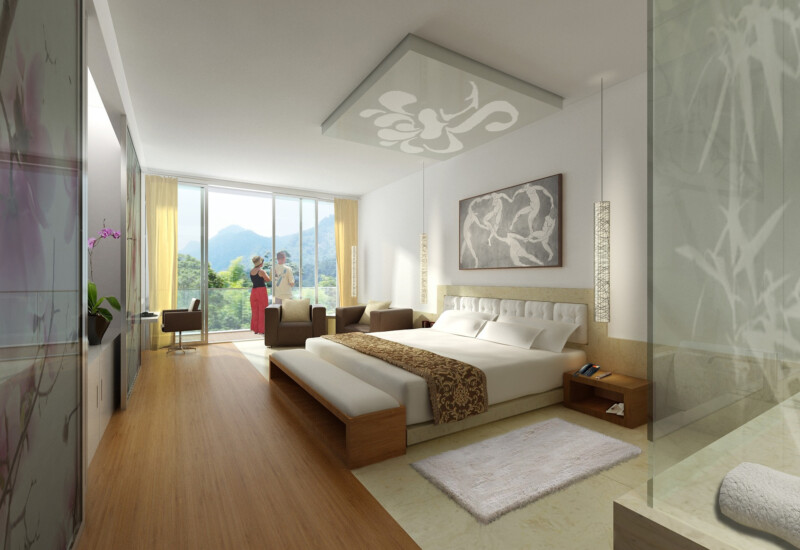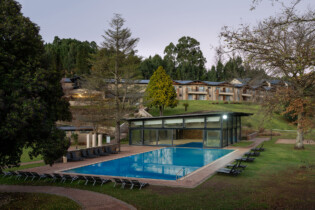 Remember when business travel wellness meant a gym with a treadmill and a fruit basket in your room? Fast forward to today: South African business travellers are upping the ante with demands for light-filled rooms and the holy grail of sleep aids—a memory foam pillow. Yes, you heard right.
Remember when business travel wellness meant a gym with a treadmill and a fruit basket in your room? Fast forward to today: South African business travellers are upping the ante with demands for light-filled rooms and the holy grail of sleep aids—a memory foam pillow. Yes, you heard right.
“We’re seeing more requests for specific preferences like hotel rooms with great natural light or views that don’t face another building, and of course personalised pillow choices,” confirms Rategang Moroke, Operations Manager, Corporate Traveller. She says that these requests go beyond comfort—this is about overall well-being. “Travellers want to perform at their best, and that starts with feeling good, physically and mentally,” she says.
Science backs this up. Natural daylight isn’t just eye candy—it positively impacts mood, productivity, and even sleep patterns. For businesspeople bouncing between airport lounges and hotel conference rooms, natural light is becoming as crucial as Wi-Fi.
“People are naturally drawn to daylight because it keeps them physically and mentally healthy. If you’re spending hours in transit or meetings, getting that exposure to natural light can instantly lift your mood,” Moroke elaborates. It’s not just about aesthetics—this simple tweak in hotel choice can drastically improve how a traveller feels.
And let’s not forget about getting some decent sleep. On long business trips, the right pillow can mean the difference between a productive meeting and a sluggish, jet-lagged blur. Poor-quality sleep doesn’t just drain energy—it makes it harder to cope with the inevitable frustrations of business travel, like flight delays and long layovers.
“When you’re struggling to sleep properly, dealing with even the smallest inconveniences is harder. A memory foam pillow might seem minor, but it can really help give travellers the rest they need,” Moroke notes. It’s all part of realising how physical health fuels mental stamina.
However, wellness isn’t just about the comforts experienced during the trip—it’s also about avoiding burnout during frequent work travel. While travel agencies don’t directly manage their clients’ health records, TMCs like Corporate Traveller have developed systems to monitor how often their travellers are flying and how many days they’ve been away from home. “We notice, for example, if someone has travelled 60 days out of the past 90. That’s something we flag, and then our team takes action,” says Moroke.
“Maybe we’ll ask the hotel for an upgraded room or arrange for something special like a bottle of champagne waiting for them when they check in. These little thoughtful touches can really change how they feel about the trip.” It’s the kind of proactivity that shows clients that their well-being is being taken seriously, even on the road.
This growing emphasis on wellness also extends to the dining experience. “Clients are starting to ask whether hotels offer à la carte dining instead of buffets,” Moroke shares, noting how today’s business travellers aren’t just concerned about convenience—they’re thinking about their health after hours of negotiations or presentations. “People are mindful of what they’re putting into their bodies now.” Travellers want food that works with their wellness routines rather than against it—a consideration that was scarcely discussed a decade ago.
Interestingly, the growing demand for better wellness options isn’t just coming from the travellers themselves. Companies are realising that investing in their employees’ health during trips doesn’t just make for happier employees—it makes for a more loyal workforce.
“I’ve got clients who’ve made it company policy that any trip over five hours has to be business class. It doesn’t matter who the employee is,” Moroke explains. Another example? Companies that work with airlines which offer luxurious shuttle transfers to and from the airport. “It all adds up to creating a travel experience that says, ‘You are valued here.’ And that’s crucial for employee retention,” she adds.
But it’s not just about the pampering perks. These choices have long-term effects on employee happiness and productivity. Corporate loyalty often hinges on these wellness measures, with travellers willing to stay in their jobs longer if they feel their company genuinely takes care of them while they’re on the road. “Clients aren’t afraid to spend money, but they have to see the return. They want the traveller to return in a good headspace, not completely run down,” concludes Moroke.





